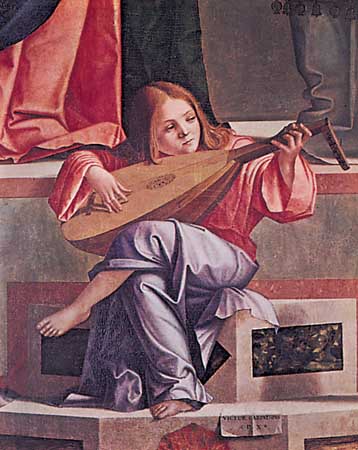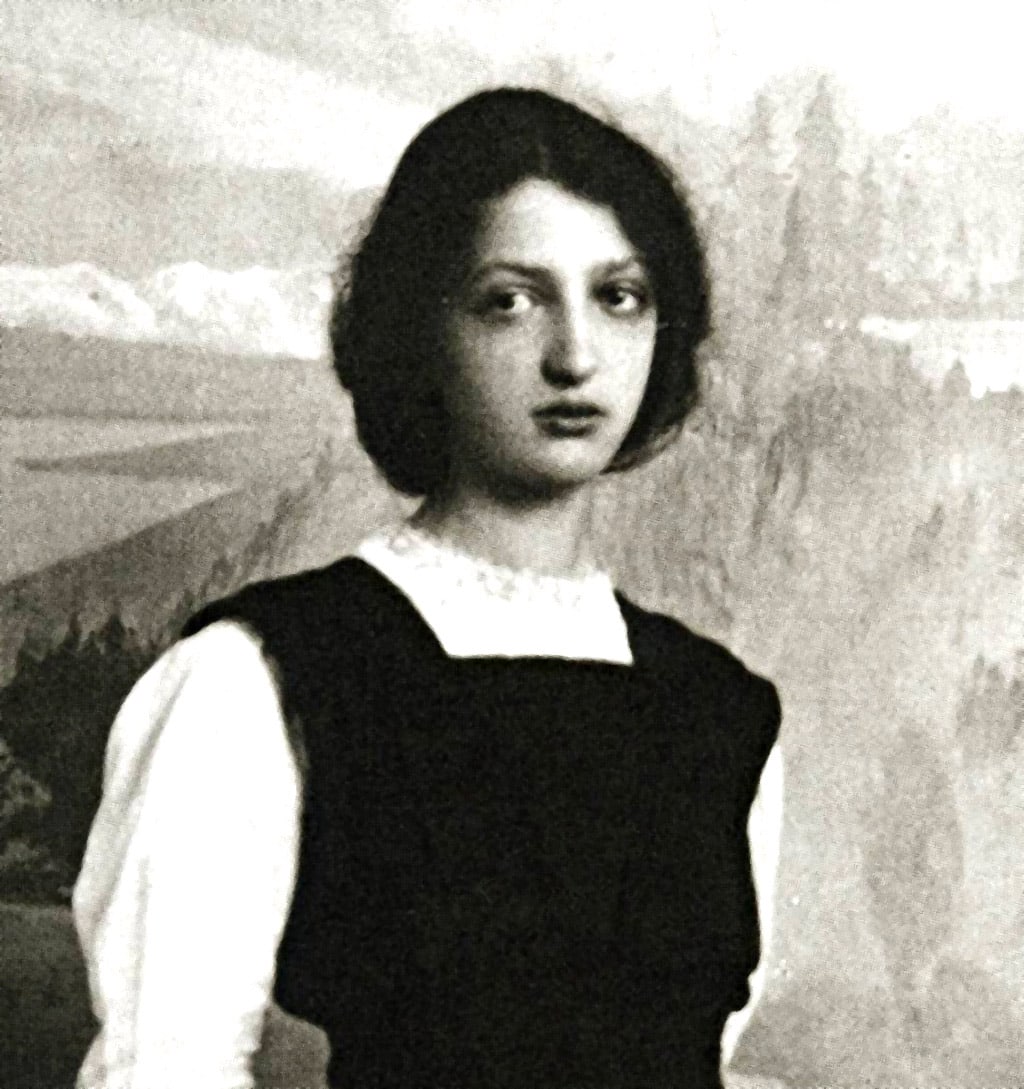This Week in Classical Music: January 3, 2021.Week One.Happy New Year again!Hard to imagine that we’re already in 2021 and that 1/5th of the century is behind us… The first week of the music calendar is always full: first, several very interesting composers, including three Russians: Mily Balakirev of the Mighty Five fame, Nikolai Medtner, whose piano music gained in popularity lately and the ever popular Alexander Scriabin; our personal favorite, the French composer Francis Poulenc; Giovanni Battista Pergolesi, the Italian who lived a tragically short life but left us a tremendous Stabat Mater, and the German Romantic Max Bruch.One of Bruch’s most popular pieces was the Kol Nidrei, for cello and orchestra, which uses the setting of the eponymous Jewish prayer for the Yom Kippur service.Even though Bruch had not a drop of Jewish blood in him, the Nazis prohibited his music on the assumption that only a Jew could compose such a piece.
And then there is the remarkable coincidence of three pianists being born on the same day, January 5th - and not just any pianists but three of the greatest ones to play in the late 20th – early 21st century: Arturo Benedetti Michelangeli, Alfred Brendel, and Maurizio Pollini.We wrote about them recently.And then there is another anniversary of a talented pianist: her name is ClaraHaskil.Haskil was born in Bucharest, Romania, on January 7th of 1895.Exceptionally gifted, she entered the Bucharest conservatory at the age of six.One year later she moved to Vienna where she studied with Richard Robert, a pianist and noted music teacher, among whose students were Rudolf Serkin and George Szell.At the age of ten Clara went to Paris where she joined Alfred Cortot’s class. At the age of 15 she graduated with the Premier Prix.She embarked on the career of a piano virtuoso, but soon was hospitalized with severe scoliosis, spending the next four years in a hospital.She later resumed her career, even though she developed extreme stage fright, touring Europe and playing in New York in 1924.In 1933 she played Brahms’s Second Piano Concerto with Stokowski and the Philadelphia Orchestra to huge critical acclaim.But health problems (in addition to several operations on her spine, she had one for a tumor on the optic nerve) combined with the stage fright rarely allowed her to perform; as a result she was barely known, even in Europe.In 1941, with Paris occupied by the Nazis, she fled the city and a year later made it to Vevey, Switzerland.Critical acclaim came to Haskil only in 1949 after a series of concerts in the Netherlands.In 1951 she played her first concert in London’s Wigmore Hall.In 1957 she was made, belatedly, a Chevalier of the Legion d'Honneur.Clara Haskil was a supreme interpreter of the piano music of Mozart; critics said that she played with “profound simplicity.”Clara Haskil died in Brussels on December 7th of 1960 after falling on the steps of the Brussels-South railway station.Here is Clara Haskil playing Mozart’s Piano Concerto no. 24; Igor Markevitch is conducting Orchestre des Concerts Lamoureux.This recording was made one month before Haskil’s death, in November of 1960.
Week One, 2021
This Week in Classical Music: January 3, 2021. Week One. Happy New Year again! Hard to imagine that we’re already in 2021 and that 1/5th of the century is behind us… The first week of the music calendar is always full: first, several very interesting composers, including three Russians: Mily Balakirev of the Mighty Five fame, Nikolai Medtner, whose piano music gained in popularity lately and the ever popular Alexander Scriabin; our personal favorite, the French composer Francis Poulenc; Giovanni Battista Pergolesi, the Italian who lived a tragically short life but left us a tremendous Stabat Mater, and the German Romantic Max Bruch. One of Bruch’s most popular pieces was the Kol Nidrei, for cello and orchestra, which uses the setting of the eponymous Jewish prayer for the Yom Kippur service. Even though Bruch had not a drop of Jewish blood in him, the Nazis prohibited his music on the assumption that only a Jew could compose such a piece.
the music calendar is always full: first, several very interesting composers, including three Russians: Mily Balakirev of the Mighty Five fame, Nikolai Medtner, whose piano music gained in popularity lately and the ever popular Alexander Scriabin; our personal favorite, the French composer Francis Poulenc; Giovanni Battista Pergolesi, the Italian who lived a tragically short life but left us a tremendous Stabat Mater, and the German Romantic Max Bruch. One of Bruch’s most popular pieces was the Kol Nidrei, for cello and orchestra, which uses the setting of the eponymous Jewish prayer for the Yom Kippur service. Even though Bruch had not a drop of Jewish blood in him, the Nazis prohibited his music on the assumption that only a Jew could compose such a piece.
And then there is the remarkable coincidence of three pianists being born on the same day, January 5th - and not just any pianists but three of the greatest ones to play in the late 20th – early 21st century: Arturo Benedetti Michelangeli, Alfred Brendel, and Maurizio Pollini. We wrote about them recently. And then there is another anniversary of a talented pianist: her name is Clara Haskil. Haskil was born in Bucharest, Romania, on January 7th of 1895. Exceptionally gifted, she entered the Bucharest conservatory at the age of six. One year later she moved to Vienna where she studied with Richard Robert, a pianist and noted music teacher, among whose students were Rudolf Serkin and George Szell. At the age of ten Clara went to Paris where she joined Alfred Cortot’s class. At the age of 15 she graduated with the Premier Prix. She embarked on the career of a piano virtuoso, but soon was hospitalized with severe scoliosis, spending the next four years in a hospital. She later resumed her career, even though she developed extreme stage fright, touring Europe and playing in New York in 1924. In 1933 she played Brahms’s Second Piano Concerto with Stokowski and the Philadelphia Orchestra to huge critical acclaim. But health problems (in addition to several operations on her spine, she had one for a tumor on the optic nerve) combined with the stage fright rarely allowed her to perform; as a result she was barely known, even in Europe. In 1941, with Paris occupied by the Nazis, she fled the city and a year later made it to Vevey, Switzerland. Critical acclaim came to Haskil only in 1949 after a series of concerts in the Netherlands. In 1951 she played her first concert in London’s Wigmore Hall. In 1957 she was made, belatedly, a Chevalier of the Legion d'Honneur. Clara Haskil was a supreme interpreter of the piano music of Mozart; critics said that she played with “profound simplicity.” Clara Haskil died in Brussels on December 7th of 1960 after falling on the steps of the Brussels-South railway station. Here is Clara Haskil playing Mozart’s Piano Concerto no. 24; Igor Markevitch is conducting Orchestre des Concerts Lamoureux. This recording was made one month before Haskil’s death, in November of 1960.
about them recently. And then there is another anniversary of a talented pianist: her name is Clara Haskil. Haskil was born in Bucharest, Romania, on January 7th of 1895. Exceptionally gifted, she entered the Bucharest conservatory at the age of six. One year later she moved to Vienna where she studied with Richard Robert, a pianist and noted music teacher, among whose students were Rudolf Serkin and George Szell. At the age of ten Clara went to Paris where she joined Alfred Cortot’s class. At the age of 15 she graduated with the Premier Prix. She embarked on the career of a piano virtuoso, but soon was hospitalized with severe scoliosis, spending the next four years in a hospital. She later resumed her career, even though she developed extreme stage fright, touring Europe and playing in New York in 1924. In 1933 she played Brahms’s Second Piano Concerto with Stokowski and the Philadelphia Orchestra to huge critical acclaim. But health problems (in addition to several operations on her spine, she had one for a tumor on the optic nerve) combined with the stage fright rarely allowed her to perform; as a result she was barely known, even in Europe. In 1941, with Paris occupied by the Nazis, she fled the city and a year later made it to Vevey, Switzerland. Critical acclaim came to Haskil only in 1949 after a series of concerts in the Netherlands. In 1951 she played her first concert in London’s Wigmore Hall. In 1957 she was made, belatedly, a Chevalier of the Legion d'Honneur. Clara Haskil was a supreme interpreter of the piano music of Mozart; critics said that she played with “profound simplicity.” Clara Haskil died in Brussels on December 7th of 1960 after falling on the steps of the Brussels-South railway station. Here is Clara Haskil playing Mozart’s Piano Concerto no. 24; Igor Markevitch is conducting Orchestre des Concerts Lamoureux. This recording was made one month before Haskil’s death, in November of 1960.